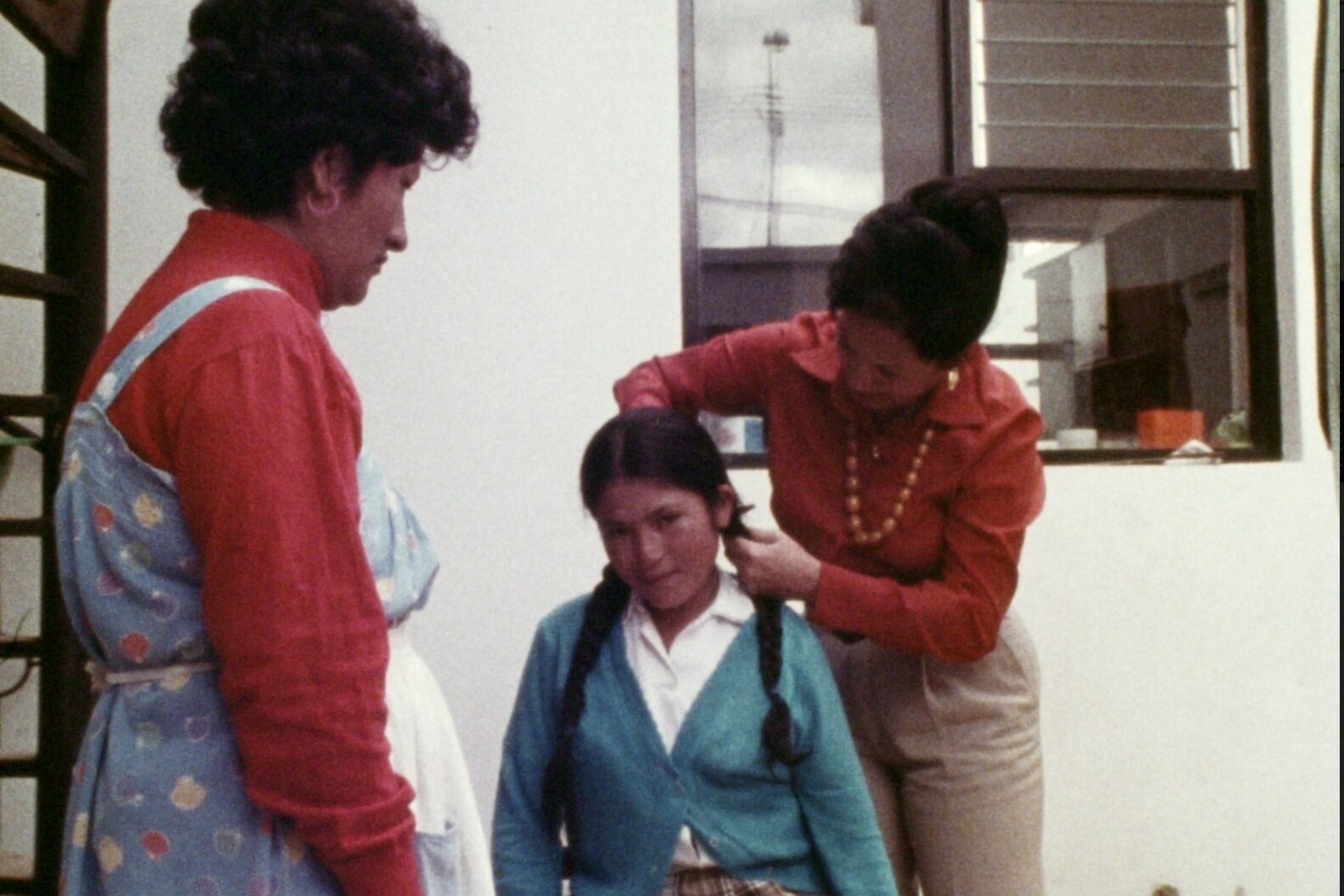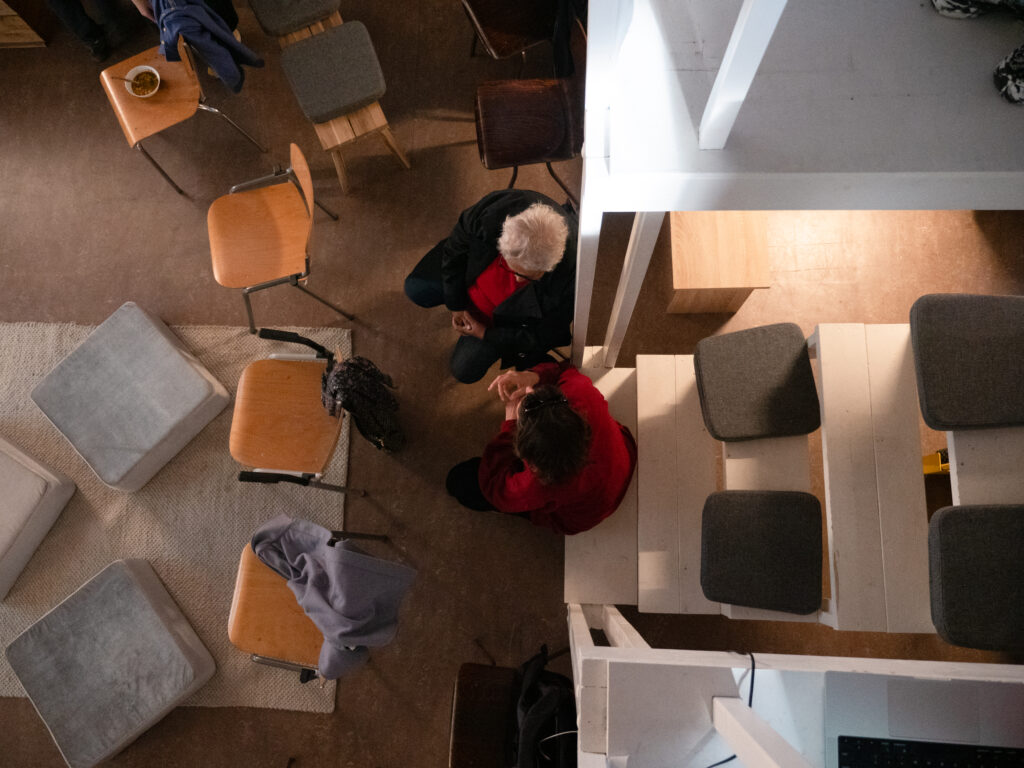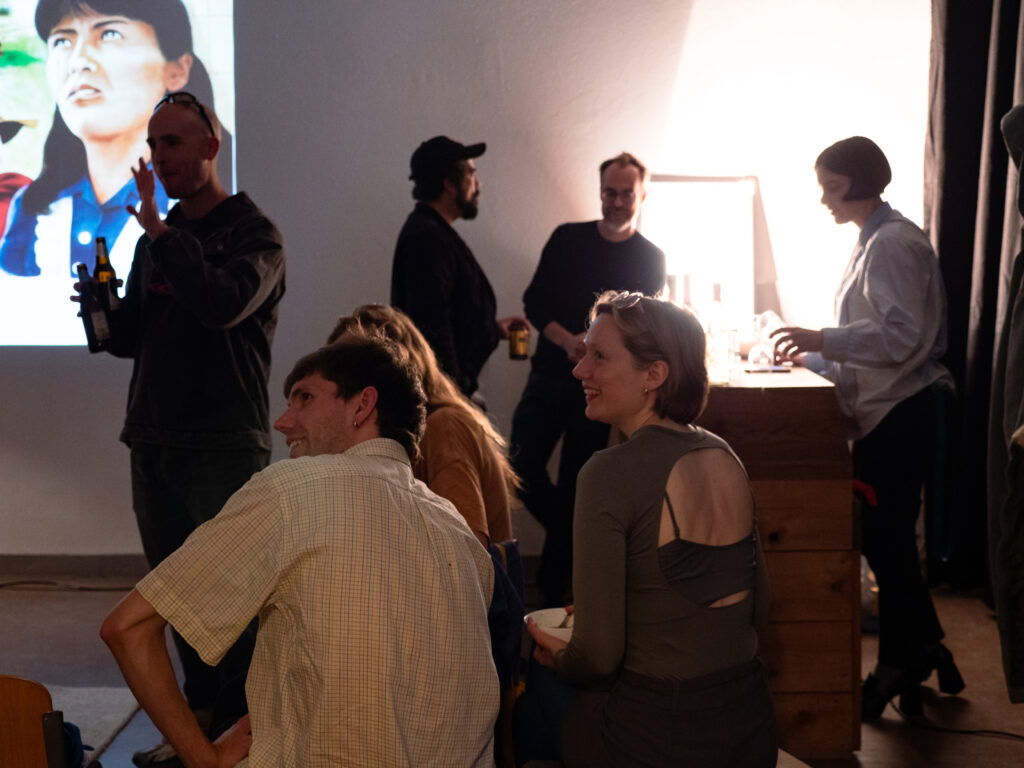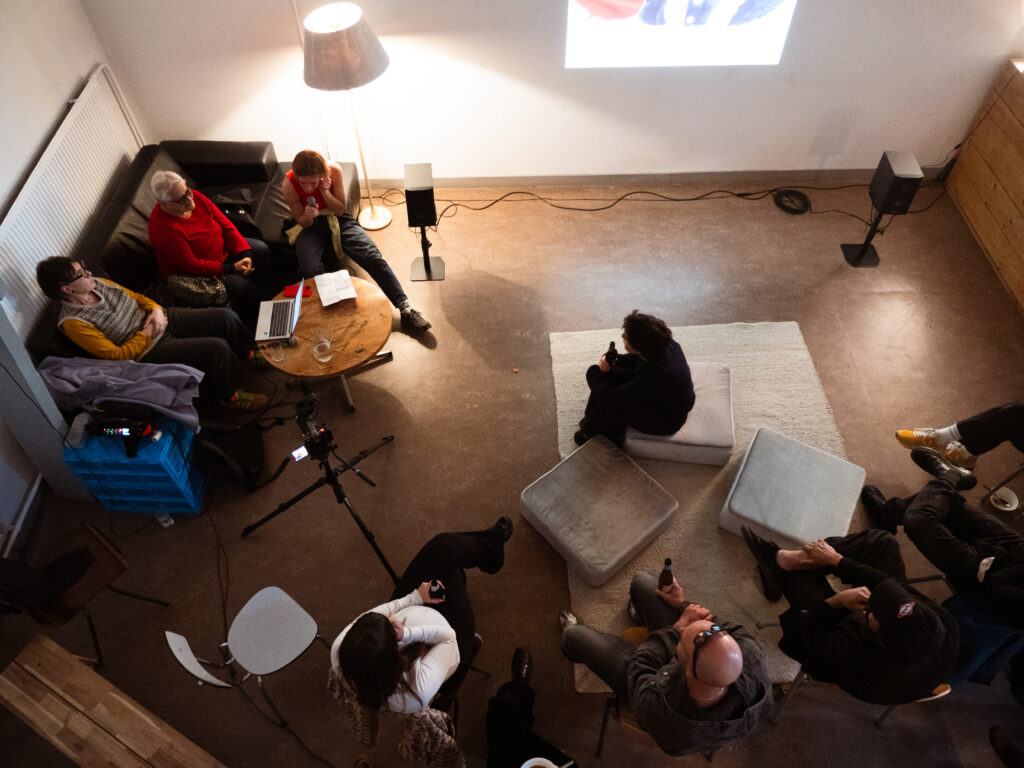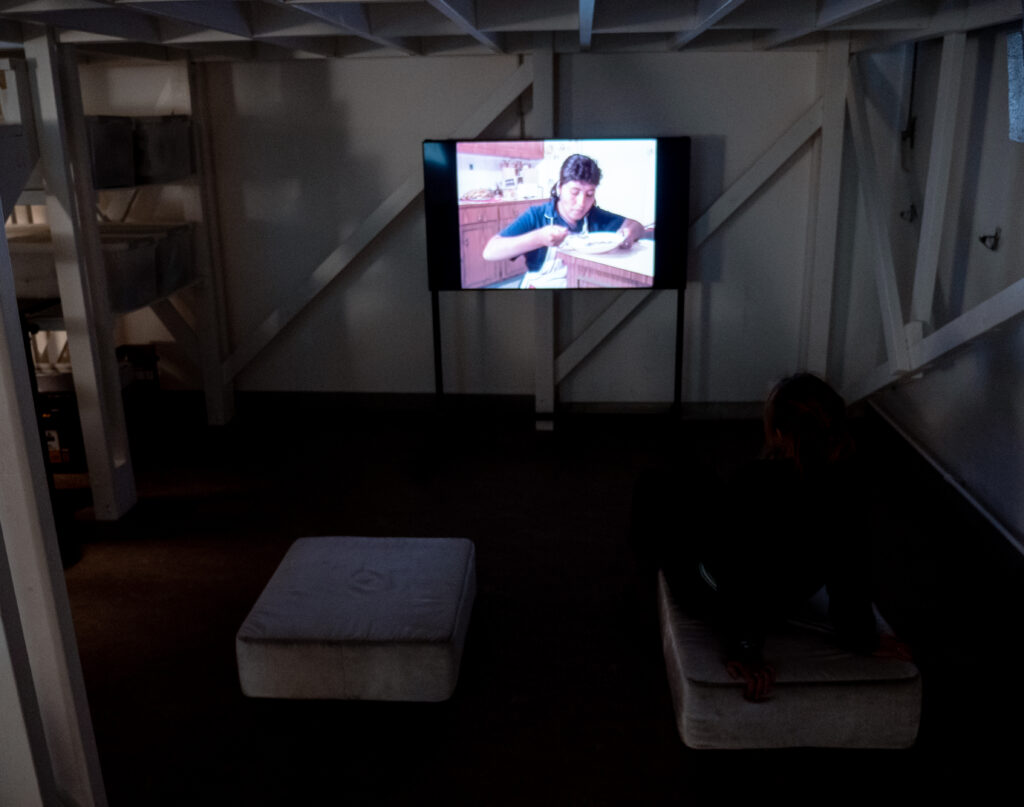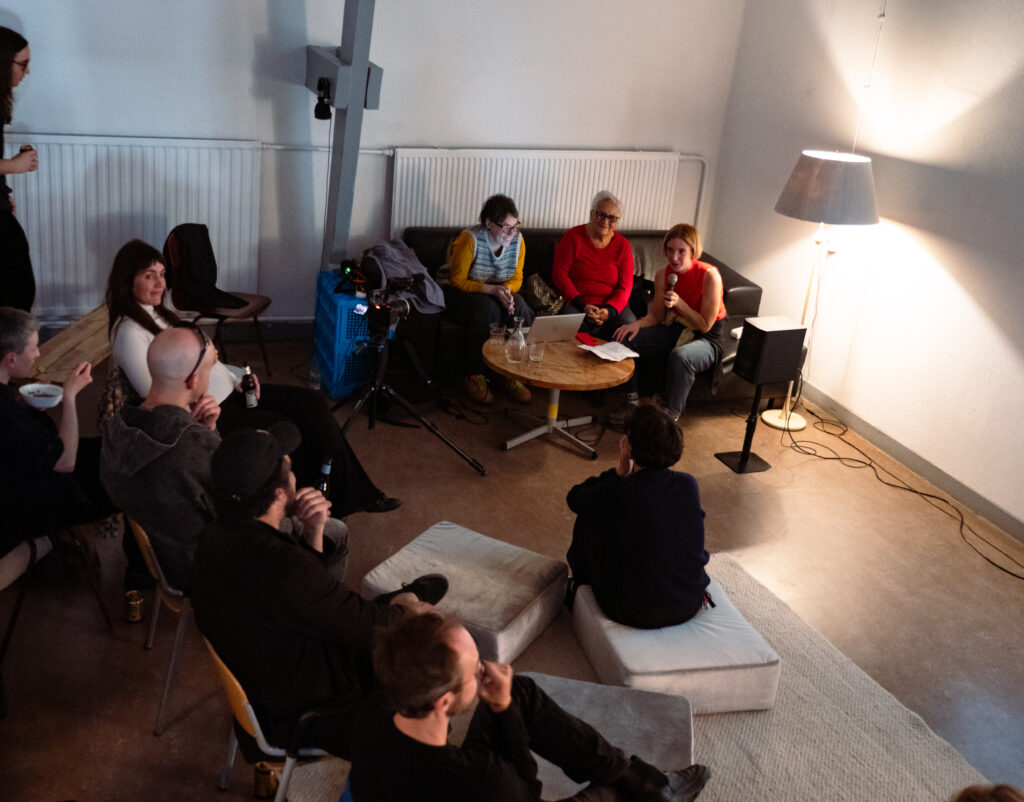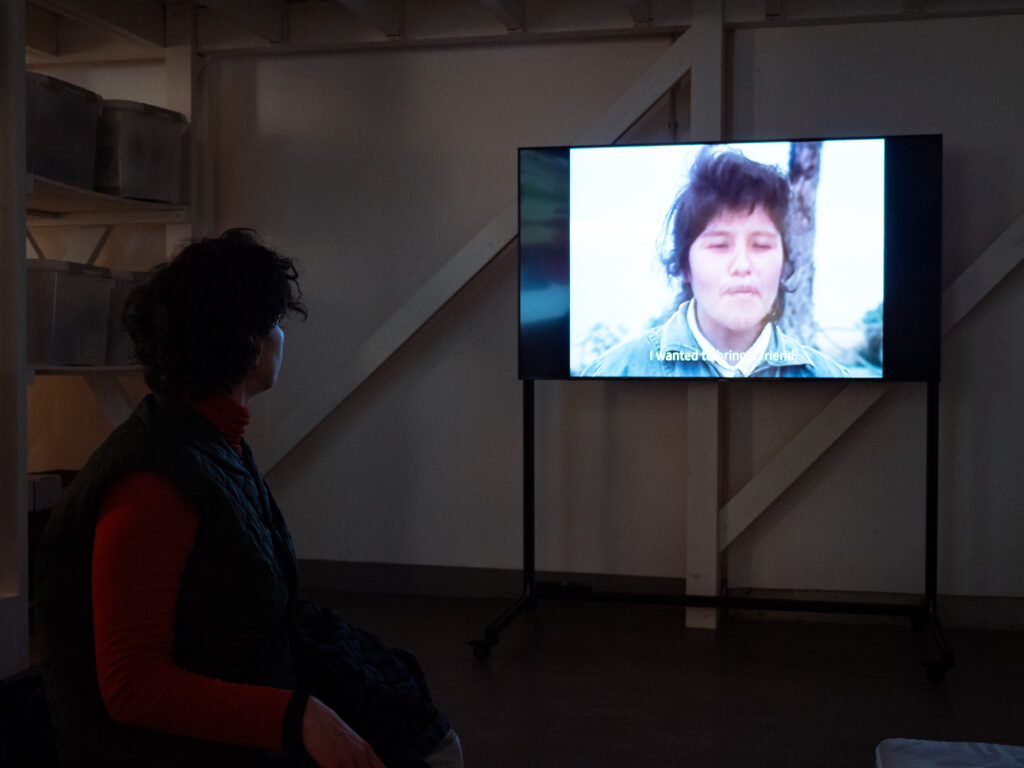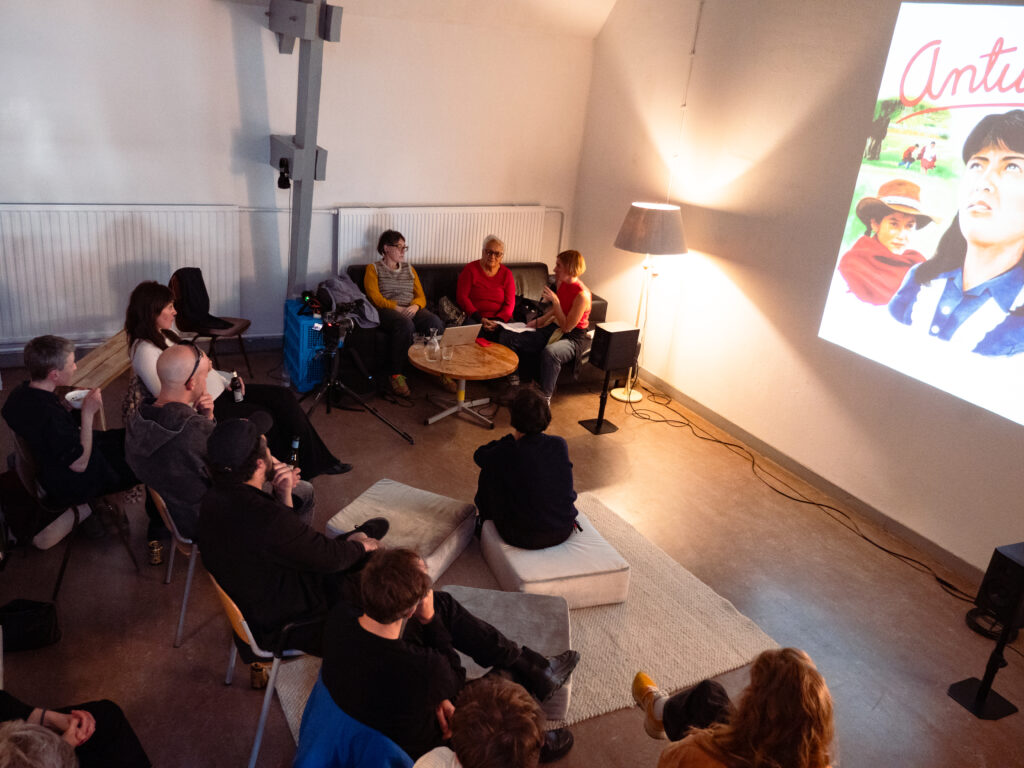Talk, Screening + Q&A with María Barea and Isabel Seguí
Talk, Screening + Q&A with María Barea and Isabel Seguí
Date & Time: Friday 11th April 2025, 6pm
(doors/soup 5pm, talk 6pm, screening 6.30, Q&A 7.45pm)
We are very excited to announce the first event at WET in 2025, as part of our ongoing year-long question: How to make films that not only question but remake the world?
This special evening revisits the work of María Barea, a pioneering self-taught Peruvian filmmaker who collaborated with feminist and Indigenous groups to challenge dominant filmmaking conventions. Through her films, she sought to create a more radical, collaborative, and ethical cinema, one that centered the lives and voices of those often silenced.
We will be screening Antuca (1992), a lightly fictionalised yet deeply personal portrayal of young Indigenous women working as domestic servants in Peru. María Barea and film scholar Isabel Seguí will join us in person for a talk before and conversation following the screening.
Alongside this, Porque Quería Estudiar (1998) (Because I Wanted to Study) will be installed in the space. Feel free to arrive early to see it.
Barea’s work has recently undergone restoration (2023–24) and we feel very lucky to be able to present it here at WET. Join us as we reflect on Barea’s filmmaking, her resistance to patriarchal hierarchies, and her unwavering commitment to giving voice to the voiceless.
María Barea (b. 1943, Chancay, Peru) worked for over 30 years as an actor, director and producer of films. In 1982, she co-founded the film group Chaski, with which she has made the films Miss Universo en el Peru (1982) and Gregorio (1985). In 1989, she co-founded the women’s film group’ WARMI Cine y Video’. Her films include, Mujeres del Planeta (1982), Porcon (1989/92), Porque queria estudiar (1990), Antuca (1992), Daughters of War (1998).
Isabel Seguí is a lecturer in film studies at the University of St Andrews (Scotland) and co-director of the St Andrews Institute for Gender Studies. As a feminist film historian specialising in Andean-Amazonian women’s film and videomaking, she works on democratising access to research sources. For that, she co-created, with Lorena Best, the archival website Reversible Archive (https://archivoreversible.com/en).
~
We’re excited to share with you the recording of a talk by Isabel Seguí, introducing the cinema of María Barea in the larger context of artisanal feminist filmmaking in Peru, as well as a Q&A with Isabel and Maria after the screening of Maria’s film “Antuca”, all of which which took place at WET in April 2025.
You will find the recordings on Spotify under the name:
How to make films that not only question but remake the world
We’re keen to share more of our programme for those who are further afield or unable to attend in person, and will be publishing more documentation from our events throughout the year. In the talk Isabel mentions the following groups, directors, films and books:
Luis Figueroa and María Barea, Pukara Films (“Los Perros Hambrientos”, “Yawar Fiesta”
Jorge Sanjines + UKAMAU (“The Principal Enemy”)
Warmi Cine y Video (“Porque quería estudiar”, “Antuca”, “Hijas de la Violencia”)
Chaski Group (“Miss Universo en el Perú”, “Gregorio”)
Rosa Dueñas (Comité de Damas Aurora Vivar + “Mujeres de El Planeta” by Maria Barea
IPROFOTH (Association of Domestic Workers)
Isabel Seguí + Lorena Best, “Reversible Archive” https://www.archivoreversible.com/en/
Querejeta Zine Eskola San Sebastian
Erika Balsom and Hila Peleg “Feminist Worldmaking”
WET is supported by its members, Mondriaan Fonds, Gemeente Rotterdam, and Stichting Volkskracht.
Access: WET is located on the 3rd floor and unfortunately is not wheelchair accessible. The ground floor of the building has step free access via a ramp. There is an elevator to the second floor and a flight of steps to the third floor. Gender neutral and wheelchair accessible toilets are available. Please get in touch if you have any questions about access.
Photo credit: Maria Barea, Antuca,1992 (courtesy of the artist)
[/vc_column_text][/vc_column][/vc_row]
